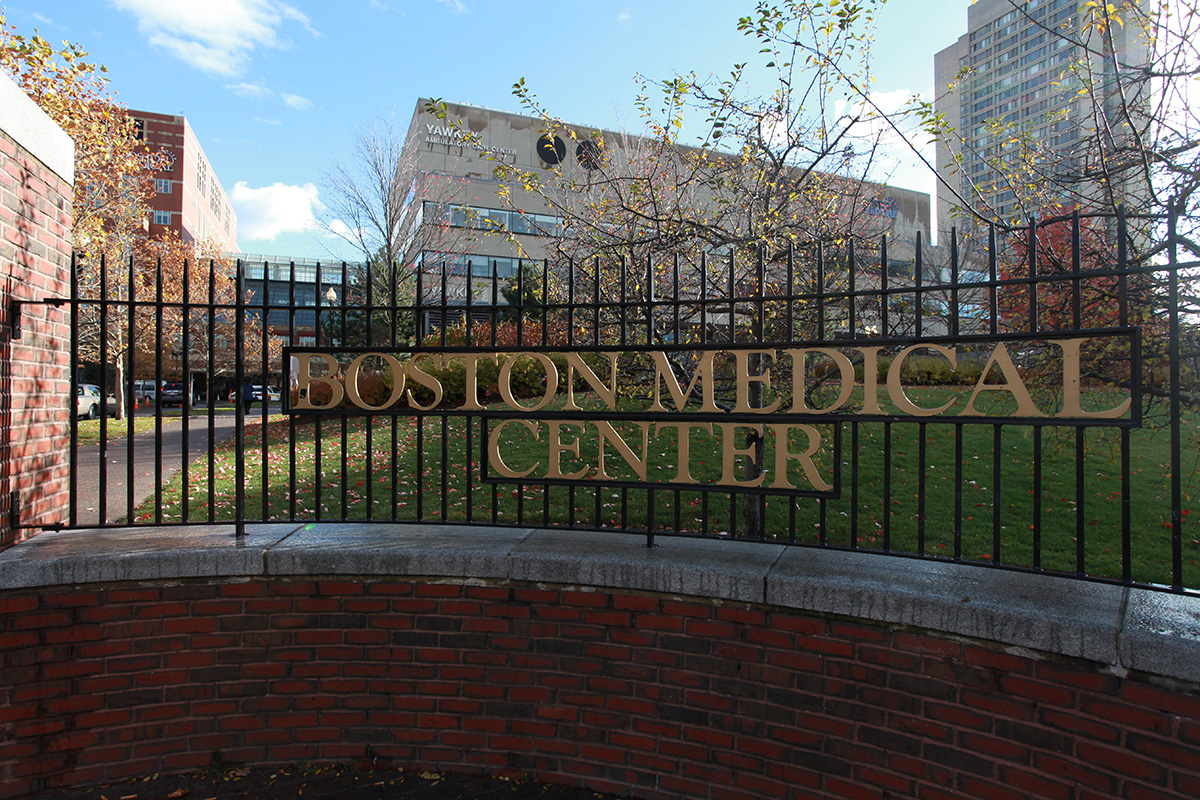Boston Medical Center Launches Opioid Urgent Care Center

Photo by Alex Lau
Boston Medical Center (BMC) is fighting the opioid epidemic head-on, with a new opioid urgent care center that aims to give patients faster access to substance abuse treatment.
The new center, called Faster Paths to Treatment, is run in collaboration with the Massachusetts Department of Public Health (DPH) and the Boston Public Health Commission (BPHC), and is funded by a four-year, $2.9 million grant from the DPH. It’s housed in BMC’s Yawkey Ambulatory Care Center, and will use inpatient and outpatient services to help individuals with detoxification and follow-up care.
“We have learned from experience that one of the biggest barriers to effectiveness in treatment for substance use disorder is timeliness,” Edward Bernstein, program director for Faster Paths, said in a statement. “This grant will help us create a more comprehensive system of care that will allow a greater number of patients to access the services they need, when and where they need it.”
The impetus for a program like Faster Paths is clear: Last year, 1,379 people died of an opioid overdose in Massachusetts. The center could have an especially large impact given its parent hospital. According to the statement, Boston EMS transported 2,601 patients with narcotics issues to area hospitals last year. Nearly 37 percent of those patients ended up at BMC.
Patients who come to Faster Paths will be comprehensively assessed and given referrals to addiction treatment and primary care resources. They’ll also be educated about opioid overdoses, and receive rescue kits including naloxone, which can reverse an opioid overdose.
If a patient needs to be stabilized, he or she can visit the outpatient program, which will be staffed by an addiction nurse, physician, and counselor. After stabilization, patients are enrolled in maintenance programs at their local community health centers, or at BMC.
“We know that timely access to treatment is crucial to saving lives, that’s why the Baker Administration has made expanding access to treatment such a high priority,” Monica Bharel, the state’s public health commissioner, said in the statement. “As we address the stark reality of losing four Massachusetts residents per day to the opioid epidemic, we must support evidence-based, innovative approaches like this to reverse this deadly trend.”


